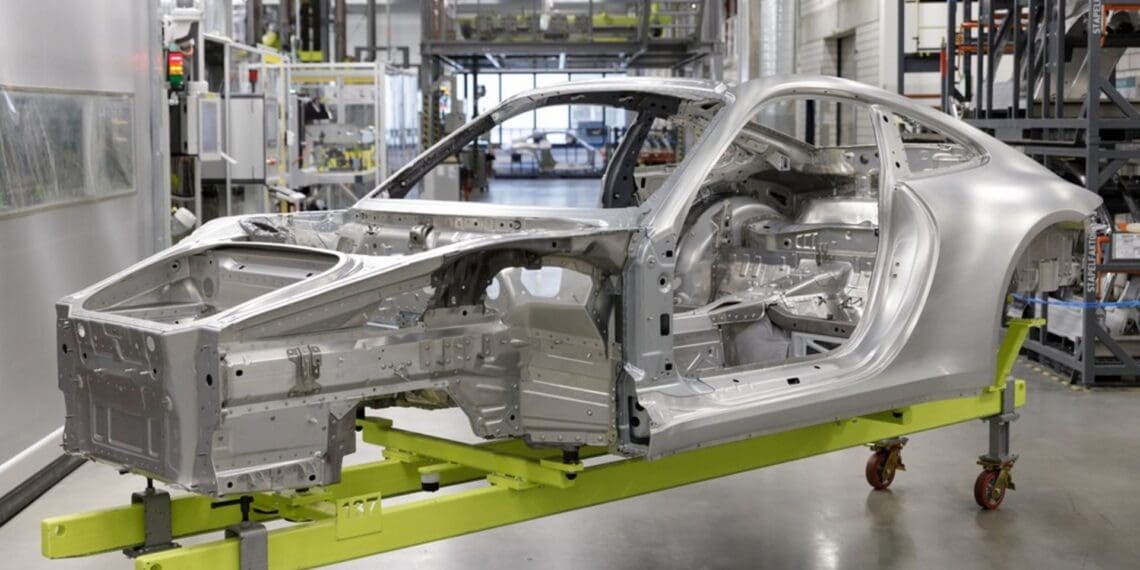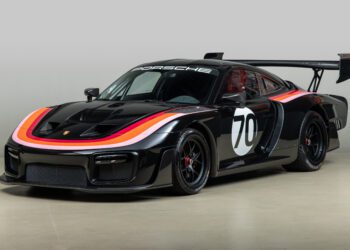Low-emission steel contributes to a greener footprint in sports car production by 2026.
In an eco-conscious shift that will rev up sustainability efforts in the automotive industry, Porsche is steering towards a greener future by incorporating CO₂-reduced steel into its sports cars starting from 2026. This forward-thinking initiative comes as Porsche signs an agreement with the Swedish energy trailblazer H2 Green Steel, marking a significant gear change in the quest for environmental responsibility within the luxury car market.
The essence of this collaboration lies in the innovative production of steel using renewable energy, which is set to commence in Boden, Sweden, by the end of 2025. The allure of this partnership for Porsche is the promise of steel boasting one of the lowest carbon footprints available, a stark contrast to the traditional manufacturing methods that have long been a staple of industrial steel production.
H2 Green Steel is at the vanguard of industry transformation, harnessing hydrogen and electricity derived from renewable sources to create steel with nearly zero CO₂ emissions. The stark reduction, touted to be up to a 95% decrease compared to conventional methods, is a testament to the potential for significant environmental impact reductions across the automotive sector. With plans to utilize up to 35,000 tons of this pioneering low-emission steel annually in Porsche’s production line, the German automaker is placing a substantial bet on sustainability as a core component of its brand ethos.
Porsche’s ambitious path to a carbon-neutral footprint by 2030 sees CO₂-reduced steel playing a starring role. “Our sustainability strategy is integral to our operations, and the steel from H2 Green Steel will help us curtail the CO₂ emissions linked with this critical material,” explains Barbara Frenkel, a member of the Porsche AG Executive Board for Procurement. With steel’s presence in vehicle construction remaining paramount due to its robust mechanical properties, Porsche’s commitment to reduced CO₂ steel reflects a conscientious balance between maintaining performance standards and fostering environmental stewardship.
Despite a gradual reduction in steel use in Porsche models, favoring aluminum for its lightweight advantages, steel’s durability and strength remain indispensable in sports car construction. Porsche’s approach is not just about swapping materials but also invigorating the entire supply chain with greener practices. “Energy, processes, and materials significantly impact our supply chain emissions. Our focus is to amplify the use of recycled content and renewable energy in our suppliers’ production processes,” comments Frenkel, highlighting the comprehensive nature of Porsche’s decarbonization strategy.
H2 Green Steel, founded in 2020 with the mission to decelerate the steel industry’s carbon footprint through green hydrogen, represents a new epoch in manufacturing. With its roots in Stockholm and a pioneering plant developing in Boden, the company is a beacon of sustainable innovation. Porsche’s partnership with H2 Green Steel is a testament to the evolving landscape of luxury car production, where prestige and performance meet pioneering environmental responsibility. As Porsche sets a new benchmark for the industry, it invites car enthusiasts and environmental advocates alike to envision a future where speed and sustainability are no longer at odds, but in harmony on the road ahead.





